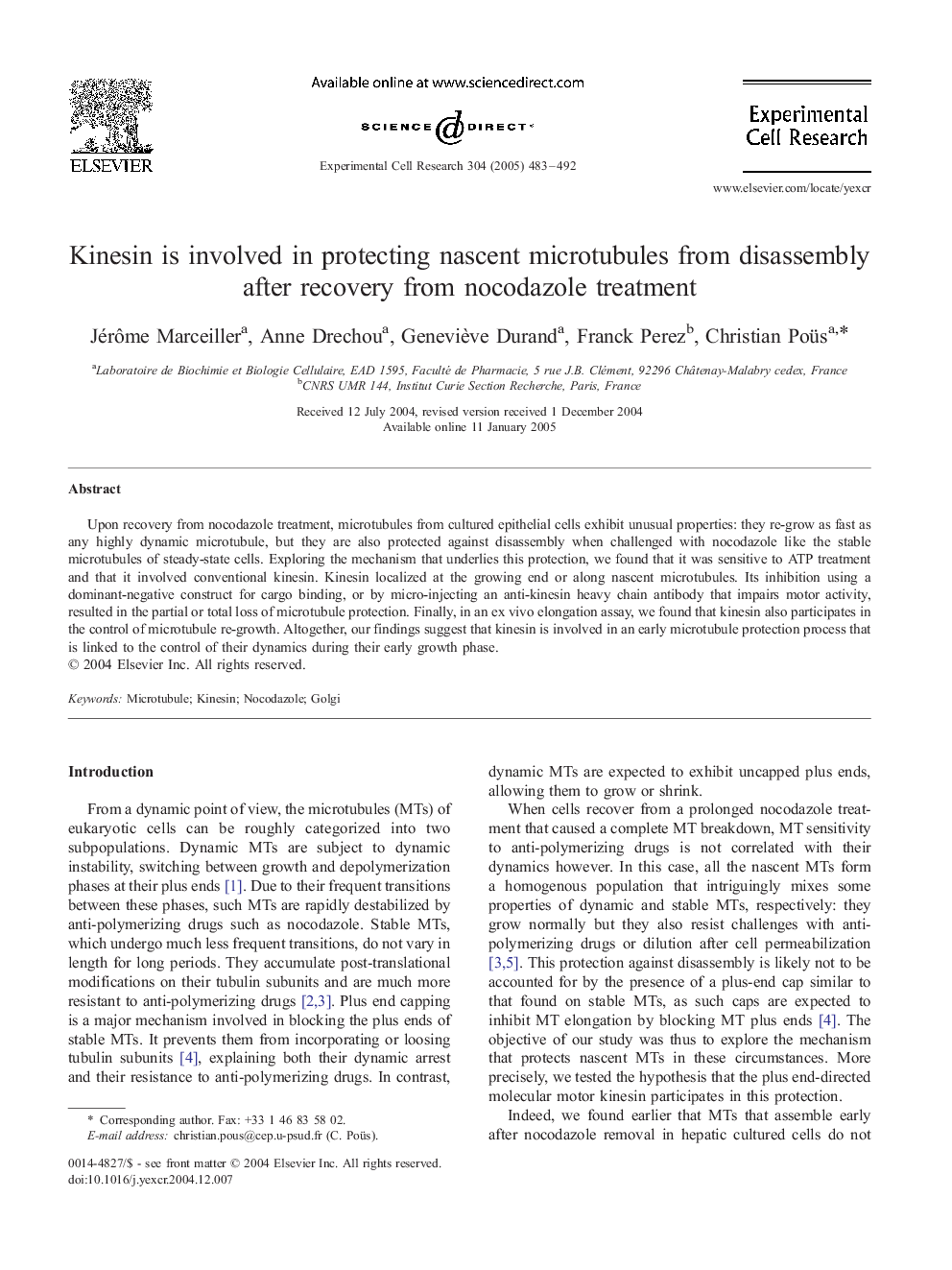| Article ID | Journal | Published Year | Pages | File Type |
|---|---|---|---|---|
| 10905032 | Experimental Cell Research | 2005 | 10 Pages |
Abstract
Upon recovery from nocodazole treatment, microtubules from cultured epithelial cells exhibit unusual properties: they re-grow as fast as any highly dynamic microtubule, but they are also protected against disassembly when challenged with nocodazole like the stable microtubules of steady-state cells. Exploring the mechanism that underlies this protection, we found that it was sensitive to ATP treatment and that it involved conventional kinesin. Kinesin localized at the growing end or along nascent microtubules. Its inhibition using a dominant-negative construct for cargo binding, or by micro-injecting an anti-kinesin heavy chain antibody that impairs motor activity, resulted in the partial or total loss of microtubule protection. Finally, in an ex vivo elongation assay, we found that kinesin also participates in the control of microtubule re-growth. Altogether, our findings suggest that kinesin is involved in an early microtubule protection process that is linked to the control of their dynamics during their early growth phase.
Keywords
Related Topics
Life Sciences
Biochemistry, Genetics and Molecular Biology
Cancer Research
Authors
Jérôme Marceiller, Anne Drechou, Geneviève Durand, Franck Perez, Christian Poüs,
